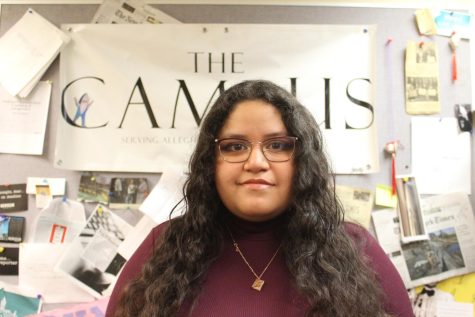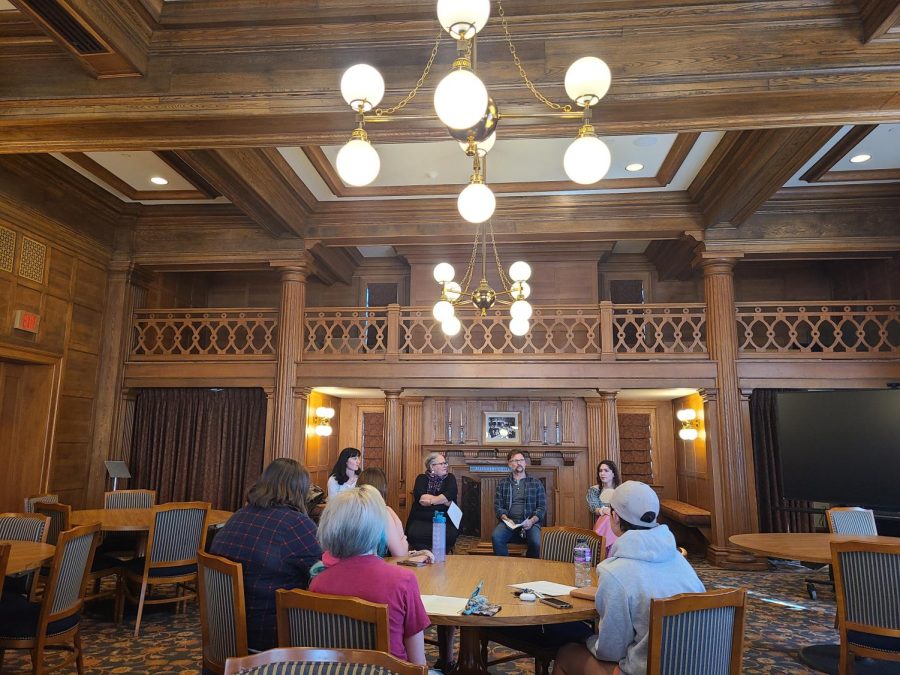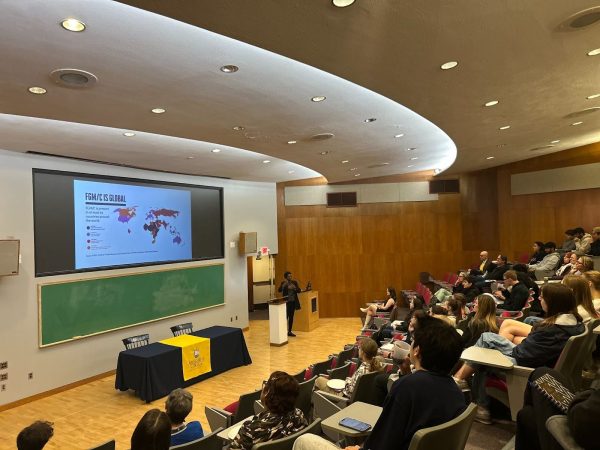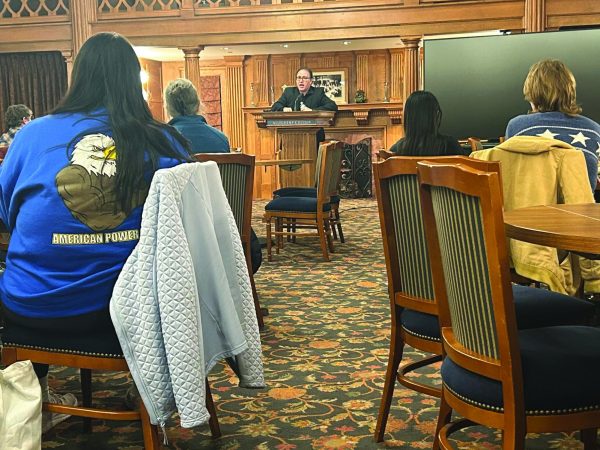Creative writing panel demystifies publishing creative work
Literary enthusiasts and students gathered on Wednesday, April 19, in the Tillotson Room in the Tippie Alumni Center for a creative writing publishing panel hosted by the Allegheny Review and Allegheny’s English department. The event aimed to give students tips about publishing their creative writing in spaces like the Allegheny Review.
Students were provided with cover letter templates and a guide to submitting creative writing before the four panelists began answering questions.
The Allegheny Review is an international undergraduate literary magazine curated by students at Allegheny College. The publication has been publishing for over 40 years and accepts submissions annually until October 15.
Frederick F. Seely Professor of English Christopher Bakken was one of the panelists featured, as he has published five books over the course of his career as an author.
“I think the most commonly asked questions will be logistically how do you go about submitting work, what are the paradigms that an author should think about to make sure their submissions look professional,” Bakken said in an interview before the panel. During the panel, many students were interested in the editing process of publishing creative work.
“One of the things I always tell students is to remember that editors are really busy and they have a lot of submissions to read, so how are you going to make your submission easy for them to consider?”
Bakken advised students to make sure their submissions are professional and distinctive because it is what publishers care the most about.
“Publishing the work is the thing that people don’t want to talk about because it is the hardest part,” Bakken said.
Allegheny Review Senior Editor and main organizer of the panel Shira Haus, ’23, said her goal for the panel was to create a space where students interested in publishing creative writing could learn about the process. Haus said she has not seen an event like the creative writing publishing panel at Allegheny in the years she has been a student.
“I hope to share what I have learned and my experiences in the publishing industry, both as an editor of the Allegheny Review and as a writer myself who has been submitting to literary journals and magazines since I was 16,” Haus said. “Hopefully my experiences can help other Allegheny writers get their work published out there.”
Haus said one of the lessons she has learned from her experience with publishing work has been to get comfortable with rejection.
“There will be places that want your work but you just have to keep trying, keep reviewing and keep revising your stuff and sending it out,” Haus said.
Allegheny Review Senior Editor Kori Bower, ’23, said sending out work is less scary than people make it out to be because of the professional culture in publishing.
“I know it can be very nerve-wracking to send your work to other people and know that they are judging it but it is usually very professional and done in very polite manners so it shouldn’t be nerve-wracking because no one is out to get you,” Bower said.
Bower said students who want to submit work to the Allegheny review should make sure the formatting meets the guidelines.
“I know one of the experiences we have had on the review a lot has been students thinking they are submitting something super new and cool by submitting it in color or strange formatting,” Bower said. “Things like that are cool but don’t necessarily make it easy for us to publish them.”
Allegheny Review Senior Editor Hayley Simon, ’23, said one of the most important parts of getting an editor interested in a submission is to understand the publications’ criteria in what they are looking to publish.
“Knowing your audience and knowing a lot about the journal you are submitting to is very important ahead of time,” Simon said. “If you are submitting to a journal or magazine that exclusively publishes students, you want to make sure to tell them that you are a student.”
Simon advises students to start early with submitting their work if they want to pursue a career in creative writing.
“You are going to get more rejections than you will get pieces that are accepted,” Simon said. “Starting sooner rather than later is a great idea because then you can rack up those accepted pieces and sometimes it will help you get published in the future.”

Evelyn Zavala is a senior from San Francisco. She is majoring in Business and minoring in Journalism in the Public Interest. This is her fourth year on...








